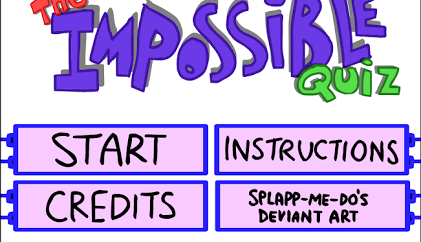Care for Harvey under watchful eyes in BLOODMONEY2
Keep exploring
Keep your Bloxd io momentum going with more parkour trainers, builder sandboxes, and PvP standouts.

Fireboy and Watergirl: Ice Temple

Fireboy and Watergirl: Crystal Temple

Speed Stars

Clasherdle

Fireboy and Watergirl: Forest Temple

Smash Karts

Stick It to the Stickman

Pips NYT

Fireboy and Watergirl: Elements

The Impossible Quiz
BLOODMONEY2: routine management with moral pressure
Supervise a life that’s always being measured
BLOODMONEY2 drops you into a sanitized room where Harvey’s day runs on checklists and timers. You are the caretaker, the scheduler, and the conscience inside a system that never stops scoring. Meals, hygiene, rest, meds, finances—every click moves a hidden meter that favors compliance yet quietly records kindness. The program never explains its thresholds. It only renders judgment, then invites you to try again. Because BLOODMONEY2 is a simulation about routine under surveillance, small decisions echo across reports, dialogue, and scene fragments that you’ll only notice after several runs.
How play unfolds in short, tense loops
Each cycle in BLOODMONEY2 lasts just a few minutes. You’ll juggle micro-tasks that appear simple at first—prepare food, brush teeth, straighten a bed, balance a ledger—yet the pressure rises as overlapping prompts arrive. Ignore a request and the interface gets prickly. Rush a task and you might pass the check but lose an unseen point for care. The tension of BLOODMONEY2 isn’t about jump scares; it’s about feeling watched while managing a person’s needs with imperfect information.
Systems that quietly reshape outcomes
Three invisible vectors underpin BLOODMONEY2: compassion, efficiency, and obedience. The first rewards time spent listening or choosing gentler options; the second favors quick, accurate inputs; the third is satisfied when you follow directions even when they seem unkind. Across multiple loops, BLOODMONEY2 turns these vectors into different supervisor notes, color tints, UI glitches, and dialogue lines. You won’t see a scoreboard, but you’ll sense which values you’ve served by the way scenes reassemble.
Five micro-games that define the day
In BLOODMONEY2, core actions appear as bite-size interactions. Brushing is a rhythm mini-game that rewards steady pacing. Cooking becomes a sequence puzzle—chop, heat, season, plate—with penalties for skipping steps. Sorting finances asks you to classify expenses while a countdown hurries you along. Rest involves aligning breathing cues with calm inputs. Hygiene checks use drag-and-drop motions that tempt you to cut corners. None are hard in isolation, but together they force tradeoffs about where to spend attention. The genius of BLOODMONEY2 is that the quickest route rarely feels like the right one, and the kindest route isn’t always the safest for the final report.
Hidden scoring, visible consequences
The ledger in BLOODMONEY2 never speaks directly, yet it leaves fingerprints. A line of text appears that wasn’t there before. A monitor light flickers when you soothe rather than scold. A congratulatory banner shows up after a perfectly timed routine, but the next day begins colder. Over time, BLOODMONEY2 teaches you to read mood from interface friction, and to treat the UI itself as an unreliable narrator. If you’re chasing secrets, experiment with opposite behaviors—rigid obedience one loop, deliberate warmth the next—and watch the audit language mutate.
Strategy for first-time caretakers
Start your first BLOODMONEY2 session by choosing a guiding principle: protect Harvey’s dignity, speedrun every checklist, or obey the program no matter the cost. Commit for three cycles in a row before switching styles. This pattern helps you map cause and effect across the hidden axes. Next, track telltale reactions: does Harvey’s posture relax after extra dialogue? Do status icons quiet down when you complete tasks in an unhurried order? The more you notice, the more BLOODMONEY2 reveals how micro-optimizations tilt the day.
Advanced tips to surface rare scenes
To uncover unusual reports in BLOODMONEY2, deliberately leave one routine technically incomplete, then over-invest in another. For example, cook perfectly but deliver a late finance sort while offering calming chatter. Another loop, do the reverse: scorch the pan quickly yet reconcile every expense with flawless tagging. In both cases, check how the evaluator tone shifts. BLOODMONEY2 also rewards edge-case behaviors—like performing an instruction that seems slightly cruel, followed by a sincere corrective gesture. The audit system notices when you try to make amends.
Who will appreciate this kind of pressure?
If you enjoy management sims that prioritize mood over mechanics, BLOODMONEY2 is aimed at you. It has the pace of a cozy game but the ethics of a psychological thriller. Players who liked balancing care and compliance in minimalist narrative sims will find familiar rhythms. Because loops are short, BLOODMONEY2 suits quick sessions between tasks, yet it also rewards longer nights of experimentation when you’re hunting distinct endings and flavor text.
Accessibility and quality-of-life notes
Controls in BLOODMONEY2 rely on simple mouse inputs with clear hitboxes. Timers are generous early on and scale as you improve. If you’re sensitive to flashing elements, check settings for visual comfort options; the interface occasionally uses subtle flicker to signal judgment. Audio cues matter for rhythm tasks, but BLOODMONEY2 includes visual equivalents so you can play muted if needed.
A narrative that hides in routine
Beyond mechanics, BLOODMONEY2 tells its story through paperwork language and offhand remarks. Harvey’s lines change depending on how you handle ordinary care. A clipped “thanks” after a rushed meal is different from a relieved exhale when you take time to plate gently. Supervisors never show their faces, yet their presence saturates the room. The program wants results; you may want something humane. That conflict is the heart of BLOODMONEY2, and it’s why a clean checklist can still feel like failure.
Replay paths that reward curiosity
Expect to loop a dozen times before you glimpse the game’s deeper logic. Try a pacifist-minded caretaker path: move slowly, over-explain, let counters hit the edge as long as Harvey remains calm. Then pursue a ruthless efficiency path: perfect timings, no extra chatter, surgical clicks. Finally, attempt strict obedience: follow prompts even when your gut protests. In each path, BLOODMONEY2 exposes a different reading of what the system values and which endings it prefers to show you first.
Practical checklist for consistent progress
Before each day in BLOODMONEY2, glance at the order of tasks and plan two that you’ll over-deliver on. During cooking, favor accuracy over speed until you learn the sequence, then invert the priority to test the auditor. During hygiene, keep rhythm steady; small mistakes cascade. For finances, batch actions into categories instead of dithering between items. After lights-out, note any UI anomalies; those are breadcrumbs toward secrets. The more methodical you get, the more BLOODMONEY2 answers with fresh lines and subtle scene edits.
Why this simulation stands out
Many management games grade you explicitly, but BLOODMONEY2 treats grading as storytelling. The absence of visible numbers creates space for interpretation, and that ambiguity is where your personal ethics show up. Are you comfortable doing harm if a form says you passed? Do you accept a lower letter grade to preserve someone’s comfort? With each loop, BLOODMONEY2 nudges you to decide what a “good outcome” actually means.
Make your own ledger
Keep notes on three runs at a time—what you emphasized, what shifted, what lines appeared. Patterns emerge quickly when you record them, and BLOODMONEY2 becomes a lab for testing care strategies. It’s a compact experience, but its moral math lingers. By the time you’ve unlocked a handful of distinct reports, you’ll realize the game hasn’t been tracking only Harvey. BLOODMONEY2 has been measuring you as well.
Care for Harvey under watchful eyes in BLOODMONEY2 is ready to play
Guide Harvey through timed care routines as unseen auditors grade every move. Balance compassion, efficiency, and obedience in BLOODMONEY2 to trigger new reports and endings.
Share Care for Harvey under watchful eyes in BLOODMONEY2
Spread the word, invite friends, or bookmark this page to revisit the story whenever you need it.